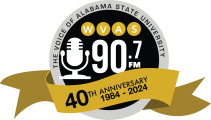Nina Feldman
-
Even if you don't have long COVID, it can still take weeks to recover — much longer than the isolation period implies. Millions of Americans are finding that this still majorly disrupts their lives.
-
At 16, Nicolas Montero is old enough to get vaccinated on his own in some parts of the country. But he had to try to get the jabs without his parents knowing, since they're opposed to the vaccine.
-
A federal appeals court ruled the effort by nonprofit Safehouse to open a "supervised injection site" to prevent overdose deaths is laudable but illegal under the so-called federal crack house law.
-
Officials may be relying on people to do their part to stop the spread of COVID-19 at a time when the public is simply not afraid enough anymore to keep up the recommended behaviors.
-
To control the virus, some officials are forgoing rules or mandates and instead are relying on individuals to do the right thing. So what motivates behavior change, and what falls short?
-
Public officials continue to send mixed messages about the pandemic: We're open for business, but also, stay home if you can. Without clear guidance, people feel confused or stop trying to be safe.
-
Relaxed regulations in response to the pandemic means more access to addiction treatment medications. But recovery programs are accepting fewer people, and the danger of overdose remains high.
-
In Philadelphia, New Orleans and Los Angeles, former safety-net hospitals sit empty. But reopening a closed hospital, even when demand for health resources spikes, is not easy or cheap.
-
Efforts to combat Philadelphia's opioid crisis with a supervised injection site could be stymied by a portion of federal law meant to protect neighborhoods during the crack epidemic of the 1980s.
-
It can be hard enough finding a doctor who prescribes buprenorphine, a medication used to treat opioid addiction. But patients also report difficulty with pharmacies that refuse to stock the drug.










